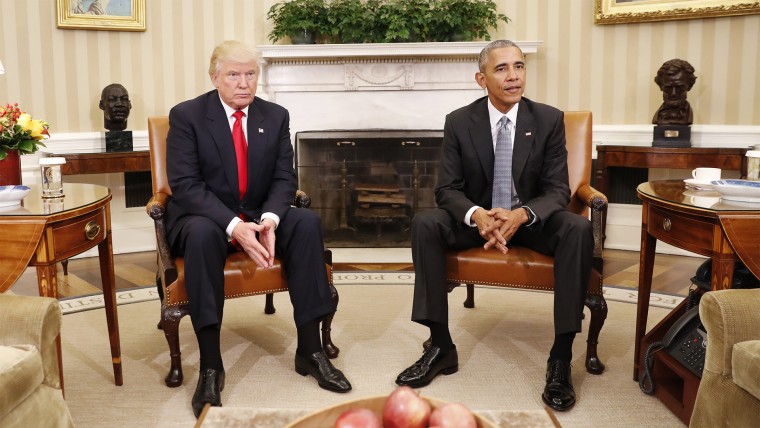Four years ago this month, as then-President Barack Obama prepared to exit the White House, he held a press conference in which he explained his vision of occasional political intervention.
"There's a difference," the outgoing president explained, "between that normal functioning of politics and certain issues or certain moments where I think our core values may be at stake."
As regular readers know, I've been keeping a casual tally of such instances, one of which arose yesterday. The New York Times reported:
Former president Barack Obama cast Tuesday's runoff elections in Georgia as an existential struggle for core democratic institutions, hours after a recording was made public of President Trump pressuring an official of the state to "find" enough votes to overturn his loss there. "Tomorrow is Election Day in Georgia and the stakes could not be higher," the former president wrote on Twitter on Monday afternoon. "We're seeing how far some will go to retain power and threaten the fundamental principles of our democracy. But our democracy isn't about any individual, even a president — it's about you."
The former president wasn't explicit when mentioning "how far some will go to retain power," but the Times' report added that a source close to Obama was, in fact, referring to Trump's scandalous phone meeting with Georgia Secretary of State Brad Raffensperger (R), in which the outgoing president pressured the state official to overturn election results Trump doesn't like.
The next question, of course, is what current officials are prepared to do when confronted with a president "threatening the fundamental principles of our democracy."
A variety of Democratic members of Congress have contacted the FBI and other agencies, seeking an investigation into Trump's misconduct. But those same members also have the authority to take steps of their own. Rep. Hank Johnson (R-Ga.), for example, is moving forward with plans for a possible congressional censure of Trump.
Other Dems are raising the specter of impeachment -- despite the fact that Trump will be out of office in two weeks -- and they're not alone. In a new op-ed, Neal Katyal and Sam Koppelman wrote today, "No one wants to put the country through the turmoil of another impeachment. But we also can't afford to look the other way."
By all appearances, Democratic leaders are not inclined to pursue the matter. At a House Democratic leadership news conference yesterday, Caucus Chairman Hakeem Jeffries (D-N.Y.) was asked whether the chamber was prepared to act in response to the revelations. "We're not looking backward, we're looking forward to the inauguration of Joe Biden on Jan. 20," he replied.
I think that's a mistake. We're not talking about a scandal from the distant past; we're talking about a possible crime the president committed three days ago, as part of an anti-democracy scheme that's ongoing right now.
Regardless, accountability matters. "There needs to be a cost to trying to overthrow an election," the New York Times' Michelle Goldberg wrote in her new column, adding, "[I]f there is no penalty for Republican cheating, there will be more of it."

